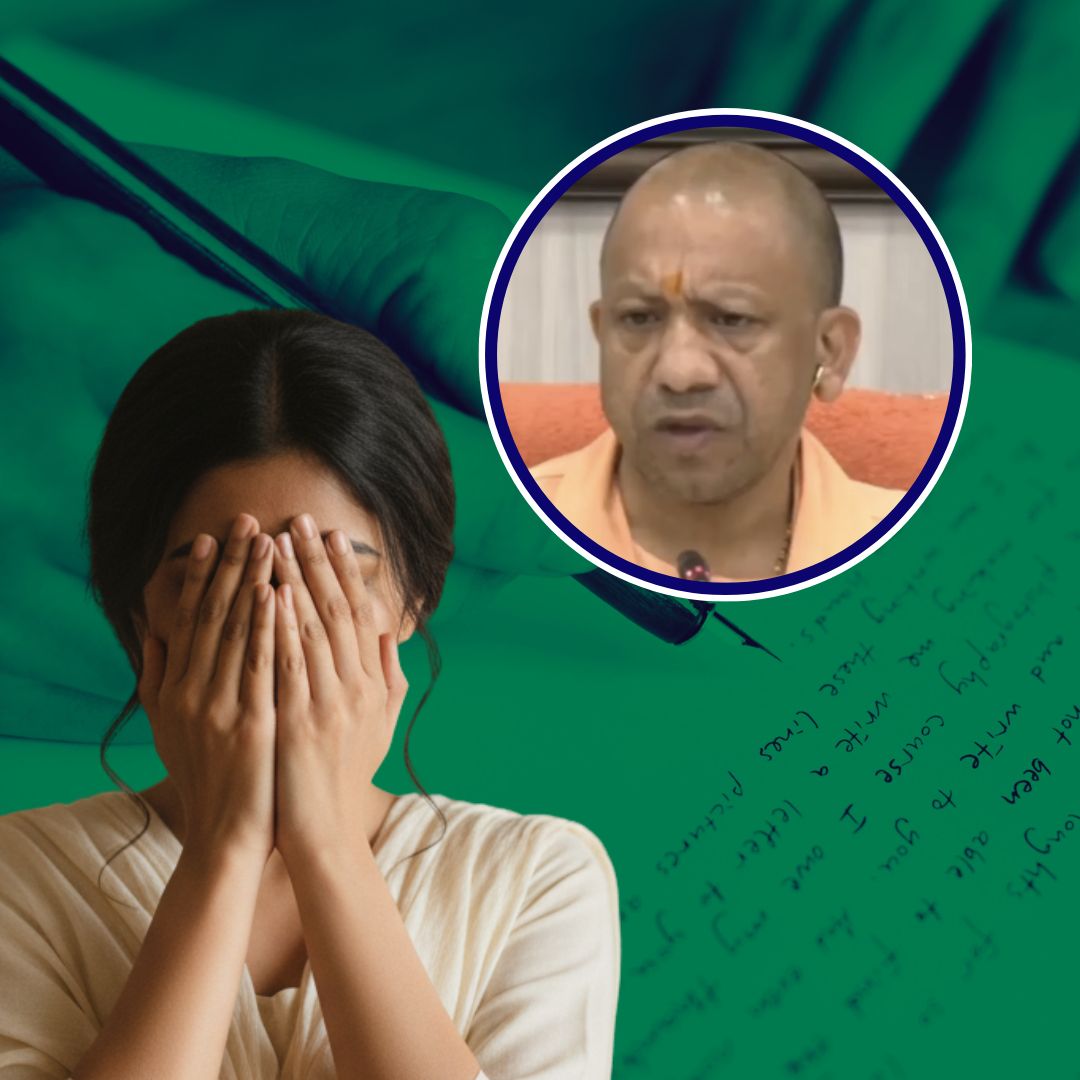In a shocking appeal for justice, Tanuja, a woman from Raebareli, Uttar Pradesh, wrote a letter in her own blood to Chief Minister Yogi Adityanath pleading for protection for her husband, who she alleges is trapped in a sextortion racket. The husband has been falsely implicated, she claims, by a woman named Kulsum Bano and her associates, including family members, causing him to flee from local authorities.
Despite repeated complaints filed with police in both Raebareli and nearby Pratapgarh, no relief has been offered. Officials have acknowledged the letter and assured that an inquiry is underway. This unprecedented act shines a harsh light on the growing menace of sextortion and the emotional turmoil it inflicts on innocent families caught in its crossfire.
A Heartbreaking Appeal Captures Attention
Tanuja’s letter, reportedly written in her own blood, conveys her desperation and fear for her husband’s safety amid what she describes as a false sextortion case. The alleged perpetrators include Kulsum Bano, two men named Wasim Khan and Aslon Khan, and others linked to them by family ties.
She asserts that they have systematically targeted her husband over the past six months, attempting to blackmail him using manipulated sexual videos. Despite running from one authority to another and filing numerous complaints, she and her husband found no protection or justice.
“I only want to save my husband’s life and restore his dignity,” Tanuja said in a statement released through local contacts. Raebareli police confirmed receiving the complaint and stated that the case is being reviewed with due diligence.
Sextortion: A Growing Digital Crime with Devastating Impact
Sextortion, a form of cyber blackmail where perpetrators leverage sexually explicit content to extort victims, has surfaced as a worrying crime across India. Victims range widely, from ordinary citizens to high-profile figures, and the psychological and social trauma caused is profound. Typically, criminals lure victims into compromising situations via social media or dating apps, record private acts, and then threaten exposure unless ransom demands are met.
This digital menace thrives on fear and shame, often leaving victims and their families isolated and struggling to seek justice. India’s legal framework presently lacks direct provisions aimed specifically at sextortion, complicating prosecution and victim protection. Experts argue for a stronger legal and institutional response, including specialised cyber units and victim support mechanisms, to combat this evolving threat effectively.
In 2025 alone, India has seen over 1.4 lakh cybercrime cases in Uttar Pradesh, many linked to sextortion and digital blackmail networks exploiting vulnerable individuals across age groups.
The Logical Indian’s Perspective
This distressing episode from Raebareli is more than an individual crisis, it is a symptom of systemic failure in protecting citizens from digital crimes and the emotional bankruptcy faced by victims excluded or ignored by institutions.
The Logical Indian advocates for an empathetic, transparent, and swift response from law enforcement authorities, ensuring victims like Tanuja and her family are heard, protected, and supported. Beyond enforcement, there is a crucial need for awareness programmes, victim counselling, and societal sensitisation to reduce stigma and empower communities.












